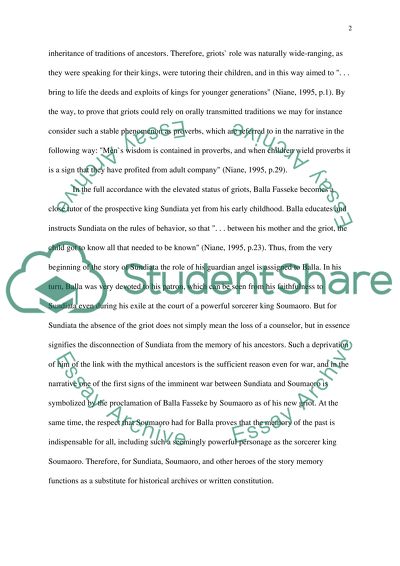Cite this document
(Sundiata: An Epic of Old Mali Book Report/Review, n.d.)
Sundiata: An Epic of Old Mali Book Report/Review. Retrieved from https://studentshare.org/literature/1532529-sundiata
Sundiata: An Epic of Old Mali Book Report/Review. Retrieved from https://studentshare.org/literature/1532529-sundiata
(Sundiata: An Epic of Old Mali Book Report/Review)
Sundiata: An Epic of Old Mali Book Report/Review. https://studentshare.org/literature/1532529-sundiata.
Sundiata: An Epic of Old Mali Book Report/Review. https://studentshare.org/literature/1532529-sundiata.
“Sundiata: An Epic of Old Mali Book Report/Review”. https://studentshare.org/literature/1532529-sundiata.


